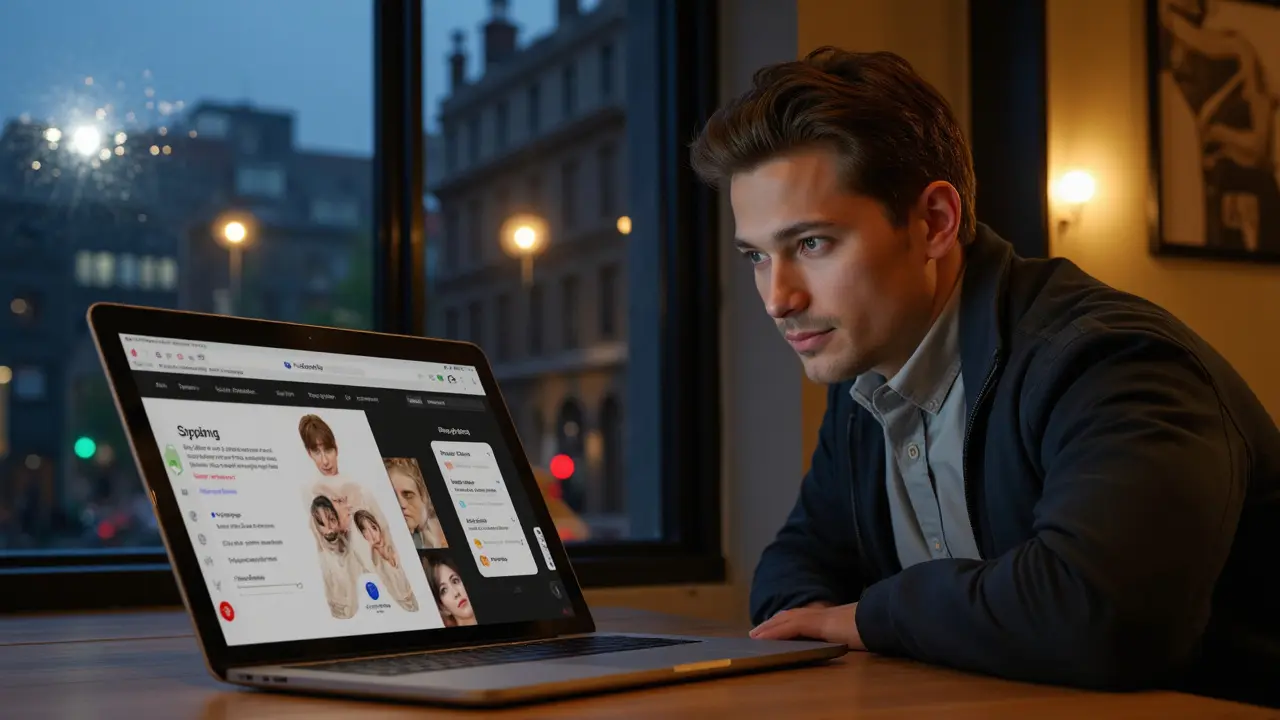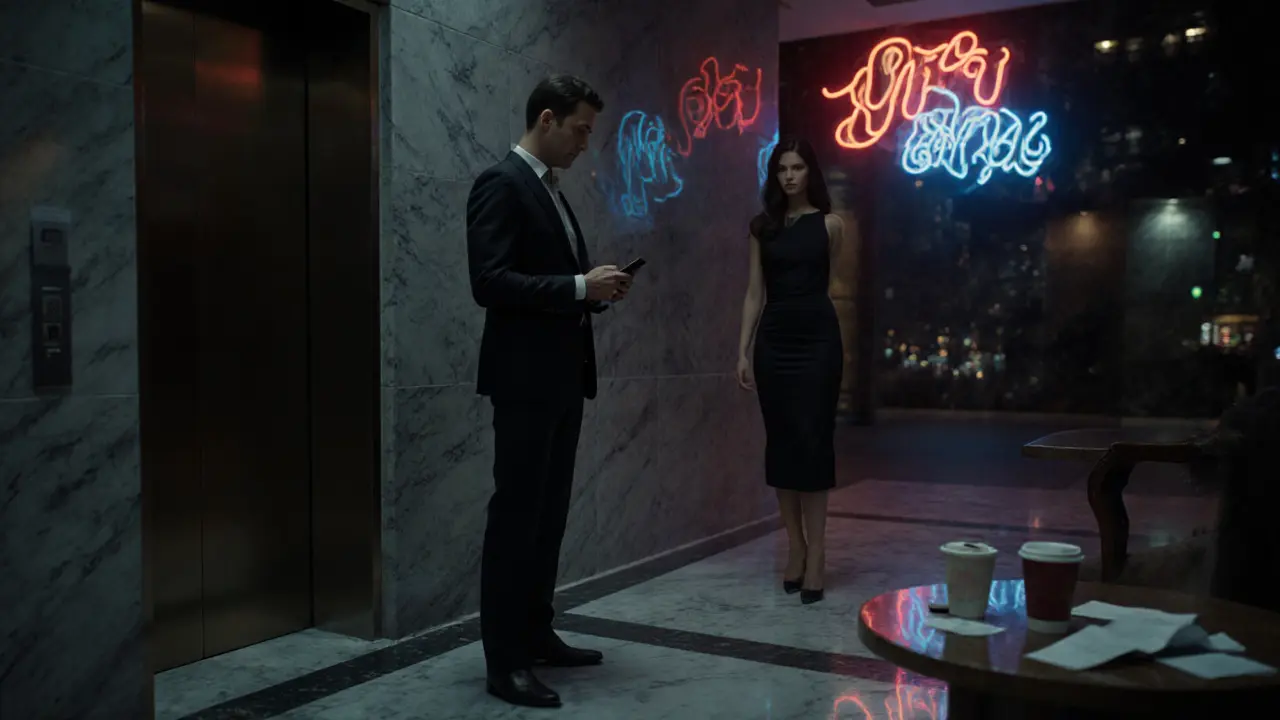Fake photos, cloned profiles, and pressure-for-deposit scams are everywhere right now. If you want a real, drama-free meeting in Europe, you need a simple, repeatable process that filters out impostors fast. This guide gives you that playbook. You will learn how to verify profiles, obey local laws, book discreetly, and protect yourself from the most common traps - without guesswork.
We will keep it practical: quick checks you can run in 3 minutes, city-specific tips across Europe, clear price ranges, and a safety checklist you can save. Finding authentic European escorts is not about luck. It is about doing the small things right, in the right order.
Direct Answer and Key Points
Short version for the impatient: authenticity rests on verification, traceable reputation, and legal compliance. Do these before you send a deposit or share personal info.
- Run a reverse image search on every photo. Exact matches across multiple cities or names usually mean a clone or bait-and-switch.
- Look for a digital footprint that adds up: a personal site, a consistent handle on social media or a companion platform, and reviews that mention specific details and recent dates.
- Check legality in the city you are visiting. Law varies by country. If buying is illegal where you are, do not proceed.
- Use secure messaging and keep all logistics in writing. Confirm time, duration, location type, donation, cancellation policy, and boundaries.
- Never pay large deposits to strangers. If a deposit is required, cap it at 20 to 30 percent via a reversible method, only after verification.
- Respect consent and boundaries. No pressure for unsafe activities, no filming, and no unagreed requests on arrival.
Key takeaways:
- Three-check rule: reverse image, cross-platform handle, and at least two recent reviews with specifics.
- Know the law: Germany, the Netherlands, and Switzerland are regulated; France, Ireland, Sweden, and Norway penalize buyers; the UK allows selling but many third-party activities are illegal.
- City benchmark pricing in 2025: Berlin 150 to 300 EUR per hour, Amsterdam 180 to 300 EUR, London 200 to 400 GBP, Paris 250 to 400 EUR, Zurich 300 to 600 CHF. Big outliers are red flags.
- Trust your process, not pressure or urgency. Scammers push hurry-up decisions; real professionals set expectations calmly.
The European Landscape: Definitions, Context, Benefits and Types
What counts as authentic in this space? A real, consenting adult professional, legally operating in their jurisdiction, with a verifiable identity and a consistent reputation trail. Authenticity shows up as consistency across photos, tone, availability, and third-party feedback.
Legal context in 2025, simplified:
- Germany: Legal and regulated. The Prostitute Protection Act requires registration and health counseling for providers. Licenses apply to businesses.
- Netherlands: Legal and regulated with municipal permits. Escort agencies need permits; clients must be adults. Windows in Amsterdam are licensed zones.
- Switzerland: Legal and regulated at the cantonal level; permits and health rules vary by canton.
- Spain: Selling sex is not criminalized nationally, but exploitation and trafficking are. Local crackdowns on street work are common. Escorting is often tolerated, but check local rules.
- France and Ireland: Buyer criminalization model. Purchasing sexual services is an offense and can lead to fines.
- United Kingdom: Selling sex is legal in England and Wales, but brothel-keeping, solicitation in public, and third-party control are illegal. Similar restrictions apply in Scotland and Northern Ireland.
- Nordic countries like Sweden and Norway: Buying sex is illegal.
- Central and Eastern Europe: Laws vary. Poland allows selling but bans brothel-keeping. Czechia does not criminalize buying or selling, but third-party exploitation is illegal. Romania bans prostitution.
Why it matters: penalties, safety, and platform behavior change across borders. In regulated markets, agencies and independents can be more open and documented. In buyer-criminalized markets, vetting is harder, and many genuine professionals prioritize anonymity and strict screening.
Benefits of getting this right:
- Safety: Verified professionals screen clients and keep better boundaries. That protects both sides.
- Predictability: Clear booking terms reduce last-minute friction or upsell attempts.
- Discretion: Pros handle privacy with care and understand business travel realities.
- Experience quality: Authentic profiles match the person you meet, not a borrowed gallery.
Common types in Europe:
- Independent companions: They manage their own site, calendar, and screening. Often the most transparent about boundaries and available dates.
- Agency represented: Agencies handle advertising, booking, and screening. Better for last-minute or multi-city options, but verify the agency license where applicable.
- Touring professionals: Travel to major cities during conventions or festivals. Calendars are posted in advance. Availability is tighter, deposits more common.
- Venue based: In cities with regulated windows or clubs, you can meet in licensed establishments. Still verify age, licensing, and boundaries on site.

How to Find Authentic Providers in Europe: A Step-by-Step Playbook
Use this repeatable flow. It is fast and works across cities.
- Start with a reputable directory or personal site. Look for sites that verify age and ID, mark verified profiles, and remove fakes proactively. Independents often have their own domain with consistent branding.
- Run reverse image search. Use two tools, not one. Check for identical images used in multiple countries or names. A match is not always bad if it is the same person’s touring ad, but mismatched ages, heights, or tattoos are a flag.
- Cross-check the handle. Search the name plus city on a review board, Twitter, and a companion platform. You want consistent tone, photos, and dates posted in the last 60 days.
- Scan reviews with a skeptic’s eye. Useful reviews reference specific details like hair length, languages spoken, date of the meeting, neighborhood, and logistics. Beware of vague praise, sudden floods of 5 stars, or identical phrasing.
- Verify legality. Before you contact anyone, search for the city’s current stance. If buying is illegal, stop. If regulated, check whether agencies or venues require permits and whether clients need to follow venue rules.
- Reach out with a clean intro. Include your first name, city and date, duration, and preferred window of time. Do not overshare. If asked for screening, consider a work email from your domain, a LinkedIn profile with visible employment, or references from providers who can vouch for you.
- Confirm logistics in writing. Day, time, location type, donation, deposit policy, cancellation window, clothing or style requests, and any boundaries. Professionals will be clear and calm.
- Handle deposit carefully. If required, keep it reasonable. Use a method with some recourse. Avoid gift cards, crypto-only demands, or wire transfers to random accounts.
- Reconfirm 2 to 3 hours before. A short message with the booking code or agreed phrase is normal. No last-minute add-ons you did not consent to.
- Arrive prepared. Hygiene, envelope ready, phone on silent, and a respectful mindset. Keep conversation friendly and direct.
City cues that help:
- Amsterdam: Licensed windows in De Wallen publish hours. Agencies list permit numbers. Ask for the company’s Kamer van Koophandel registration if unsure.
- Berlin and Munich: Independents often show a registration note on their site and may reference the Prostitute Protection Act. Agencies will state their office location and legal entity.
- Zurich and Geneva: Cantonal rules vary. Agencies list permits and health compliance. Price bands trend higher.
- Paris: Buyer criminalization means extra discretion. Screening is stricter, and many professionals avoid explicit language in emails.
- London: Independents will avoid any language suggesting a brothel or third-party control. Reputable agencies clarify they only provide introductions.
Quick authenticity checklist you can screenshot:
- Photos pass reverse search or are self-consistent across platforms.
- Same handle, same voice across at least two platforms plus a personal site.
- Two or more recent reviews with specifics and no copy-paste phrasing.
- Clear terms: donation, deposit, cancellation, and boundaries.
- Legal fit: City rules checked and understood.
What to Expect, Pricing and Booking, Safety Checklist
What a professional experience looks like, without surprises:
- Before the meeting: You will agree on the time, location type, duration, and donation. You will have a direct contact method for day-of coordination.
- On arrival: A quick confirmation by text, then a respectful greeting. Hygiene and discretion matter. Small talk helps both sides relax.
- Boundaries: Pros will state clear lines up front. It is your job to respect them. Consent is ongoing and can be withdrawn at any time.
- Ending on time: Pros keep schedule. If you want to extend, ask early and confirm rates. No pressure either way.
Pricing and booking in 2025 - rough benchmarks by city:
- Berlin: 150 to 300 EUR per hour, dinner dates from 500 EUR.
- Amsterdam: 180 to 300 EUR per hour, windows have posted rates and rules.
- London: 200 to 400 GBP per hour, dinner dates typically 600 to 1,000 GBP depending on venue and time.
- Paris: 250 to 400 EUR per hour, more discretion in communications due to law.
- Zurich: 300 to 600 CHF per hour, multi-hour bookings common among business travelers.
- Vienna and Prague: 150 to 280 EUR per hour, with reputable independents usually mid-band.
Booking mechanics that reduce risk:
- Use the 60-30-10 budget rule: 60 percent for the engagement, 30 percent for venue and transport, 10 percent buffer. Prevents awkward last-minute ATM runs.
- If a deposit is requested, 20 to 30 percent is typical. Anything higher deserves extra verification or a pass.
- Get the cancellation window in writing. Touring professionals often need 24 to 48 hours notice.
- Confirm whether cash-in-envelope or electronic payment is expected. Do not flash cash in public.
Safety checklist for you and them:
- Legal check done for the city and date.
- Meeting location is a hotel or private setting with basic security. Avoid isolated places you cannot leave quickly.
- Phone has a charged battery. Share your itinerary with a trusted friend if you want an extra layer of safety.
- No substances that impair judgment. Clear heads keep everyone safe.
- Condoms and personal hygiene sorted. No filming or photos without explicit permission.
- Respect a no if it comes up. Consent is the baseline.
Red flags to walk away from:
- High-pressure messages or aggressive countdowns for a deposit.
- Payment requests through irreversible or suspicious channels only.
- Photos that show different body features across the gallery that cannot be explained by time or style.
- Unclear answers about location, duration, or boundaries.
- Someone insisting on meeting in a location you cannot verify or change.

Comparisons, FAQ and Next Steps
Independent vs agency in Europe - which suits you?
| Criteria | Independent | Agency |
|---|---|---|
| Verification | Personal site, direct handle, reviews | Agency license or permit where required, multiple models, office contact |
| Availability | More limited calendars, strong prebooking culture | Better for last-minute or multi-hour corporate schedules |
| Screening | Often stricter and more personal | Standardized forms and ID checks in regulated cities |
| Pricing | Transparent on site, fewer add-ons | May include agency fee, clearer refund rules |
| Discretion | Direct communication, tailored expectations | Professional front desk, scripted comms |
Mini-FAQ
- How do I spot fake photos fast? Run reverse image search, then check tattoos, moles, or tiny details like phone case style across galleries. Look for identical bathrooms or hotel art used by multiple names.
- Are deposits always a scam? No. Touring professionals and some agencies use small deposits to protect their time. Verify identity first, then keep deposits modest and trackable.
- Do I need to show ID? In regulated cities, some agencies require ID to comply with local rules. Independents may accept references instead. Share only what is needed and never send a passport scan to a random email.
- What about language barriers? In major hubs like Berlin, Amsterdam, Paris, and Zurich, many professionals speak English. Check language lines on the site and keep messages simple and polite.
- Is tipping expected? Practices vary. In Europe, tips are appreciated for exceptional service but not assumed. If you do, keep it discreet.
- Can I request specific wardrobe or a dinner date? Ask politely in advance. If it requires extra time or costs, expect that to be reflected in the fee.
- What if someone changes terms at the door? If boundaries or donations shift from what was agreed, you can leave. Your safest move is to stick to written terms only.
- Are hidden cameras a risk? Reputable professionals do not film without consent. If you notice devices or feel uneasy, end the meeting and depart.
Next steps you can take right now:
- Save the authenticity checklist and the price benchmarks for your target city.
- Pick one or two verified directories plus personal sites to start your search. Avoid new platforms with no moderation history.
- Create a clean, respectful inquiry template with your preferred date, time window, and duration. Keep it short and professional.
- Decide your deposit threshold and payment method before you contact anyone. That removes pressure later.
Troubleshooting common scenarios:
- Last-minute cancellations: If you are traveling, prebook with a backup option and choose providers with clear reschedule policies.
- Unclear venue rules: Ask directly whether the meeting is in a licensed venue and what the house rules are. If you get vague answers, skip it.
- Conflicting reviews: Prioritize recent, specific reviews over older, generic ones. Look for reviewers who consistently post in the same city with detailed notes.
- Law uncertainty: If the city criminalizes buyers, do not proceed. Enjoy nightlife or a dinner date with no expectations instead.
If you are set on meeting, follow the verification steps, respect the law and boundaries, and keep it calm. The right person will make the logistics easy and the experience comfortable. The wrong one will rush, push, and dodge questions. Your process is how you tell the difference.





Cheyenne M
September 1, 2025 AT 13:58This three-check rule is the only thing that keeps you sane when everything else smells like a bot farm.
I run reverse searches almost compulsively now and you can spot the clone farms by two things alone: identical bathroom tiles and the same weird necklace in every shot. If the gallery has inconsistent tattoos or proportions that shift between photos that's a huge alarm bell and you bail. Expect typos in profiles, not mismatched bodies, and dont confuse bad spelling for authenticity. The deposit rules here are gold - never hand over a large unreversable payment, cap it and insist on something traceable. Touring pro setups often require a modest deposit, thats normal, but wire, gift cards and pure crypto only lanes are scams 90% of the time. City legality matters more than you think; a small fine or a night in a holding cell ruins travel plans and reputation and its not worth it. Professionals in regulated cities tend to have an office name or a registration note on their site, thats a quick litmus. Reviews are the main art: specific details about hair length, conversation topics, or the time of the meeting are what separates real feedback from bot blurbs. If all reviews read like cookie-cutter praise with identical phrasing, thats a buying farm or review mill. Keep messages short and transactional - name, date, duration, and a polite note about screening, nothing personal. For screening, a work email or a quick LinkedIn link is enough to be taken seriously without oversharing a passport or private docs. Reconfirm 2–3 hours before and insist on the agreed phrase or booking code; legit pros appreciate the clarity. On arrival dont be theatrical - envelope, phone on silent, respect, and you both get through the booking. If someone changes terms at the door, leave. No drama, no negotiation in the hallway. Finally save the checklist screenshot and price bands - you will be grateful on a hungover travel night when you need a backup. This process is boring and disciplined, and that boredom is what keeps you from getting scammed. Keep the paranoia healthy and the receipts handy.
Tolani M
September 2, 2025 AT 04:26There is a cultural nuance here that the OP hints at but doesn't fully unpack, and it's crucial: escorting in Europe sits at the intersection of local regulation, social norms, and the tourism economy, which means the verification playbook must be adapted to each city's lingua franca and sociocultural expectations.
In many continental cities, providers craft narratives that are meant to reassure a certain class of travelers, and those narratives are often tied to visible markers like branded websites, chamber-of-commerce numbers, or even polite photo shoots that mimic travel influencer aesthetics. This can both help and hurt verification: the polished presence implies investment and permanence, but it also makes high-quality fakes easier because the imagery is aspirational and reproducible. So the experienced traveler adds a layer of contextual triangulation: look for temporal markers in reviews, such as mentions of season-specific events, festival dates, or weather references that match recent posts, and cross-check those against the touring schedules of performers and agencies. Also note linguistic registers in messages - if someone claims to be local yet writes in a very specific kind of business English or uses regional slang incorrectly, that often betrays a template reply farm serving a pan-European clientele.
From an inclusion standpoint, remember that professional practices vary widely: some independent companions will operate under strict anonymity and expect you to provide more proof of identity before trust is extended, while agency models trade anonymity for administrative transparency. Both are valid paths; neither is a free pass. The real edge is in adding friction: legitimate providers will treat careful screening as normal and will reciprocate with clarity on boundaries, cancellation, and pricing. Scammers will demand urgency and exploit the social expectation that travelers should be flexible.
Financial mechanics deserve attention too: card-on-file arrangements with reputable platforms or low-percent reversible deposits are far safer than off-platform wire transfers. If a provider insists on elaborate crypto-only arrangements with immediate transfer, that is a red flag regardless of how polished the profile looks. Protecting personal data is paramount; avoid sending passport scans unless you are dealing with regulated agencies that explicitly require such documentation and provide a secure channel. Lastly, cultural competence matters: behave respectfully, know the local laws, and if a city criminalizes buyers or has strict public solicitation rules, adjust your expectations and look for lawful social alternatives instead. The procedural checklist is excellent, and the real practice is in cultivating a small set of trusted directories and sticking to disciplined verification rituals that respect both safety and dignity.
Michael J Dean
September 2, 2025 AT 15:33Good practical tips here that actually map to what I've seen on business trips.
I always use two reverse-image tools and then check for recent review timestamps, that saves so much time. Keep deposits small, insist on a trackable method, and have a backup provider pre-vetted. Also, hotels usually have a safe way to handle arrivals, use that when possible. Respect, hygiene, and clear boundaries make everything smoother and more professional for both parties. The price bands sound about right for 2025 cities listed here.
Jessica Buchanan-Carlin
September 3, 2025 AT 02:40Spot on about deposits and the whole reverse image thing
Dont mess around with shady payment channels theyre bait
Keep it short and professional and the law part is non negotiable
Ankush Jain
September 3, 2025 AT 13:46There is a blunt reality that needs to be stated plainly and without the usual hedging that people slip into when they try to be diplomatic about a topic most consider delicate, and that reality is that legality and enforcement are not just checkboxes you tick once and forget about; they are living, shifting things that influence every other piece of the puzzle from what platforms will permit to how professionals choose to advertise and screen clients.
The post is correct to emphasize law first because if you ignore the legal framework you will both harm someone and risk yourself, period. In places where buying is criminalized the entire transaction migrates into a shadow economy that intentionally reduces traceable signals - no public social handles, no business registrations, and fewer published reviews. That anonymity is a protective strategy for many providers and it should be respected, but it also means your usual verification heuristics have to get more creative and conservative. Look for indirect signals: longevity of an obfuscated handle, references to local venues in recent dates, or established relationships with higher-end hotels or known tour networks. If those are absent, the risk goes up.
On pricing, benchmark ranges are useful but remember that outliers sometimes represent specialists or exceptional service rather than fraud; context matters. If someone is charging double in a normally mid-band market, don't immediately assume scam, but do insist on documentation of legitimacy. Agencies in regulated cities will provide permit numbers and often have an office presence; independents will have a consistent digital footprint. Screen accordingly and always leave an out clause if anything feels off at the last minute. Finally, adopt a respectful but firm stance about boundaries - consent is a process not a checkbox and professionals who run companies or independents who run themselves as businesses will treat it that way. Stick to the playbook, and you minimize drama for everyone involved.
Robin Moore
September 4, 2025 AT 00:53Nice breakdown of agency vs independent in the guide and in these replies
One extra tip: when an agency lists permits, google the permit number and registry, it takes 2 minutes and weeds out fakes. Also save screenshots of all the messages and receipts in case you need to contest a deposit later. Keep comms concise and non-emotional. If something smells off you already know it; trust that.
Millennial Avid
September 4, 2025 AT 17:33Love the checklist vibe here, it's very much a playbook for low-friction travel hookups and I appreciate the emphasis on respect and consent.
For modern travelers, add one more digital hygiene step: create a throwaway email and a minimal, professional-looking profile for screening that doesn't reveal unnecessary personal details. That way you present legitimacy without giving up home address or full employment details. Also, bookmarking two verified directories per city saved me more than once when a last-minute cancellation happened and I needed a vetted backup fast. Be pragmatic about tipping, too - discreet is better than theatrical. And keep a small envelope ready rather than flashing cash in public, which reduces awkwardness.
Sara Gibson
September 5, 2025 AT 21:20This is an ethical frame as much as it is practical.
Respect, legal awareness, and clarity of consent are the pillars that elevate an encounter from transactional to humane. Treat providers like professionals with clear boundaries and you will reduce harm and increase reciprocity. Keep records, be accountable, and honor agreements - basic but transformative.
Stuart Ashenbrenner
September 7, 2025 AT 01:06Short and true.
Raven Ridinger
September 8, 2025 AT 04:53Spot on about deposit methods and the red flags, but let's be real - some people will still try to play dumb and push for sketchy payments like it's modern banking.
Don't fall for urgency theatrics. Demand clarity and documentation, and if you get evasive answers, walk. Full stop. There is no glamour in being scammed abroad, only regret and a messy bank statement. Keep receipts and screenshots and escalate where necessary.